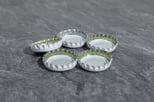The reality of alcohol abuse is that alcoholics will often rationalize their drinking. As with any addict, alcoholics engage in wishful thinking and live in a fantasy world when it comes to addiction.
Oftentimes, out of desire to maintain their habit, alcoholics refuse to acknowledge that alcohol has become detrimental to their lives. Here are some of the most common erroneous thoughts of an alcoholic.
1. I can drink without screwing everything up.
Probably the most common misconceptions among alcoholics is the idea that they can drink without serious consequences. They might even go so far as to simply utilize designated drivers or Uber services, thinking this will curb any negative impact. However, simply preventing a drunk driving incident isn’t the problem.
There is nothing responsible about alcoholism. It affects more than just the ability to drive with proper judgment. It wrecks families and relationships, careers, spiritual, psychological and emotional well-being and physical health.
2. I can have just a few.
Other than wishing the terrible consequences away, an alcoholic also mistakenly believes that he or she can have just one or two drinks. But, in reality, when you’re an active alcoholic, a few will always turn into a few too many.
3. Alcohol will help me forget my life is falling apart.
When you’re in active alcoholism, you think that alcohol is your friend—the one thing that helps you forget your problems. In actuality, it is creating new problems and perpetuating a vicious cycle that is causing your life to fall apart. And when you’re active in addiction, it is almost certain that your will life will begin to fall apart.
4. I can quit whenever I want to.
Whether it’s alcohol or any other substance, when it comes to active addiction, denial is plays a big role. You find yourself saying things like “it’s not a problem” and “I can quit whenever I want to.” What’s worse, you end up believing what you say.
However, believing that you are not addicted or can easily quit without any outside help is a delusion the highest order. In fact, it’s the very reason the first of the 12 steps is admitting you have a problem.
5. I’m not an alcoholic because I’m successful.
There are far too many individuals – addicted and otherwise – who refuse to see alcoholism for what it is unless there are obvious signs of severe consequences taking place (i.e., unemployment, homelessness, etc.). But, the latter is not the first sign of alcoholism — it’s actually referred to as advanced alcoholism.
In fact, acquiring a home, keeping a relationship or gainful employment has nothing to do with determining whether or not you are an alcoholic. To think you are not addicted simply because you can maintain a seemingly successful career is wishful thinking indeed. In the field of addiction and recovery, that phenomena also has a name; it is known as being a high-functioning alcoholic.
6. I can drink in moderation now that I have it under control.
When you enter into recovery for alcoholism, it doesn’t mean the illogical thought processes stops. In fact, the experience may even add a few more distorted thoughts to the list.
One complete falsehood in particular is the idea that once you’ve been sober for a while and received the necessary treatment for your disease, you can return to the world and easily have a glass of wine with dinner or a toast of champagne on New Year’s Eve. Of course, that’s a lie that equates to relapse and begins the journey of active addiction all over again.
But, the scary reality is that a misconception in this case can prove deadly. Sobriety causes your tolerance level to drop. Due to this adjustment, returning to active use to the degree you used prior to getting sober can result in overdose and death.
Facing the Truth
It’s vital to successful recovery to realize that these erroneous thoughts do nothing more than perpetuate the cycle of drinking. Just like some diseases, there is no known cure for addiction.
The lifestyle changes required to manage the disease of alcoholism require you to completely abstain from alcohol. That’s why it’s recommended to take things one day at a time, thus preventing the overwhelming thought of never drinking alcohol again.
Wishful thinking isn’t exclusive to individuals who suffer from addiction. However, for those in recovery or active addiction, it’s something that can perpetuate suffering, hinder recovery and have fatal consequences.
Furthermore, remember to check yourself and your ego regularly so you don’t give in to the deceptive appeal of alcohol.
|
If you or someone you know is seeking help from addiction, please visit our directory of treatment centers or call 800-891-8171 to speak to a treatment specialist. |








